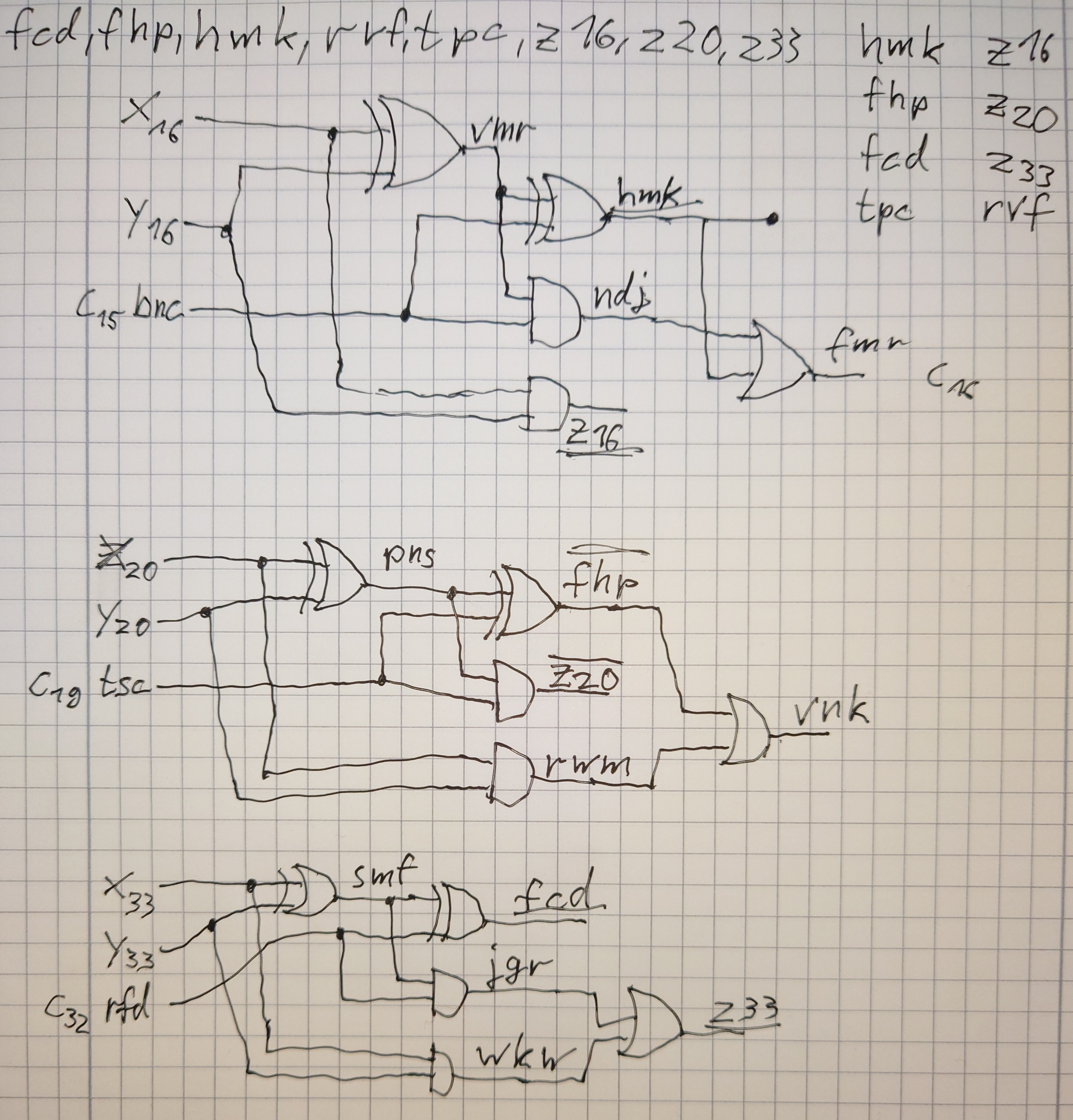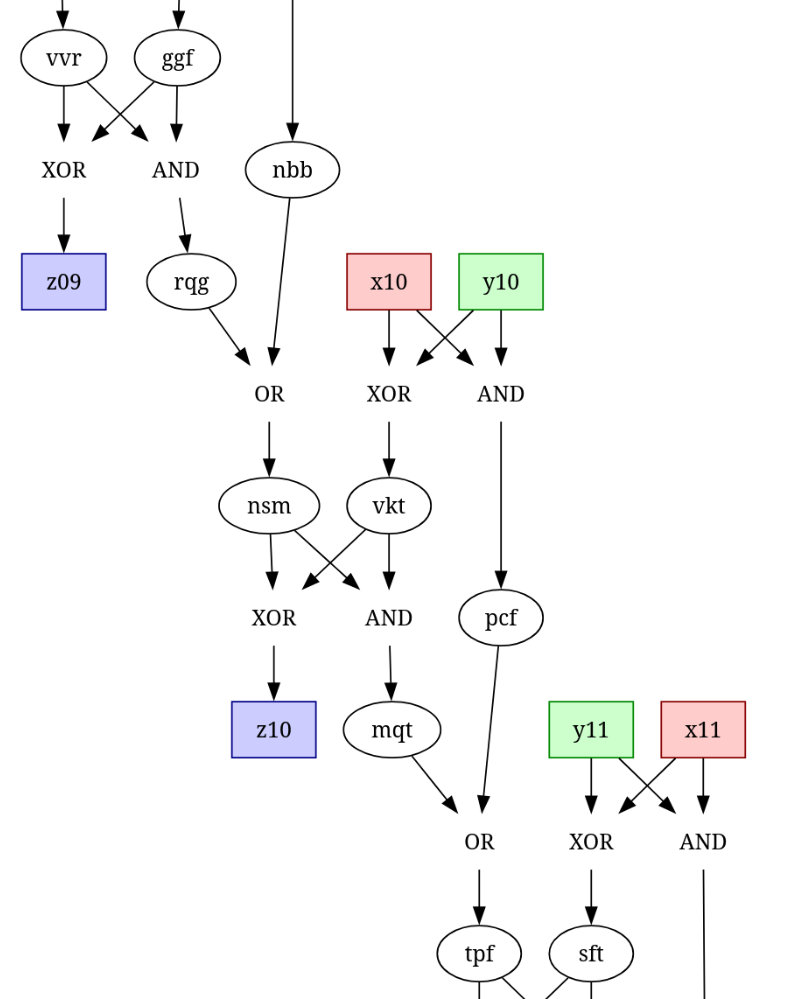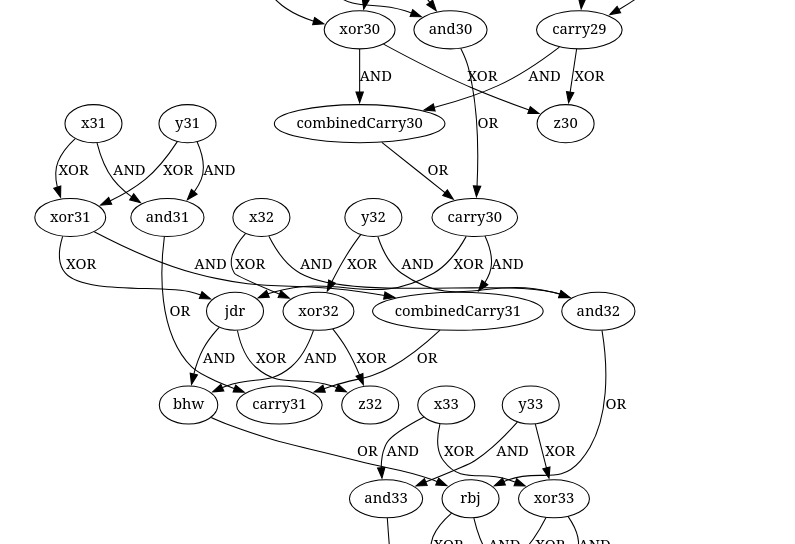Haskell, programmatic solution
I spent an entire day on this because I didn't write a unit test to check my "swap outputs" function, which effectively did nothing.
In any case: the approach (which may be more interesting than the code, I know people were interested) involved probing the addition circuit with some example additions - that is, I wrote something that'd let me give alternative inputs from x & y and compute the result using the circuit. I then gave it some simple pairs of values that'd exercise the add and carry bits (ie, pairs chosen from {i << n, n <- {1..43}, i <- {1, 3}}). That gave me some breaking trials.
Because the errors were relatively sparse, I then scanned over pairs of outputs, swapping those that didn't introduce a data dependency and checking (a) that no new errors were introduced over the trial sets, (b) for any reduction in the number of errors found. I got a bunch fo outputs like this:
swap of ("ccp","mnh") improves matters
bad trial count reduced from 346 to 344
which found the pairs for me. The search could be improved by more carefully tying the probe inputs to the outputs' dependencies (ie, if the first error comes from the (xi, yi) input bits, then look for swaps of the dependencies introduced by zi) - but in any case, it finds the answer. Phew.


